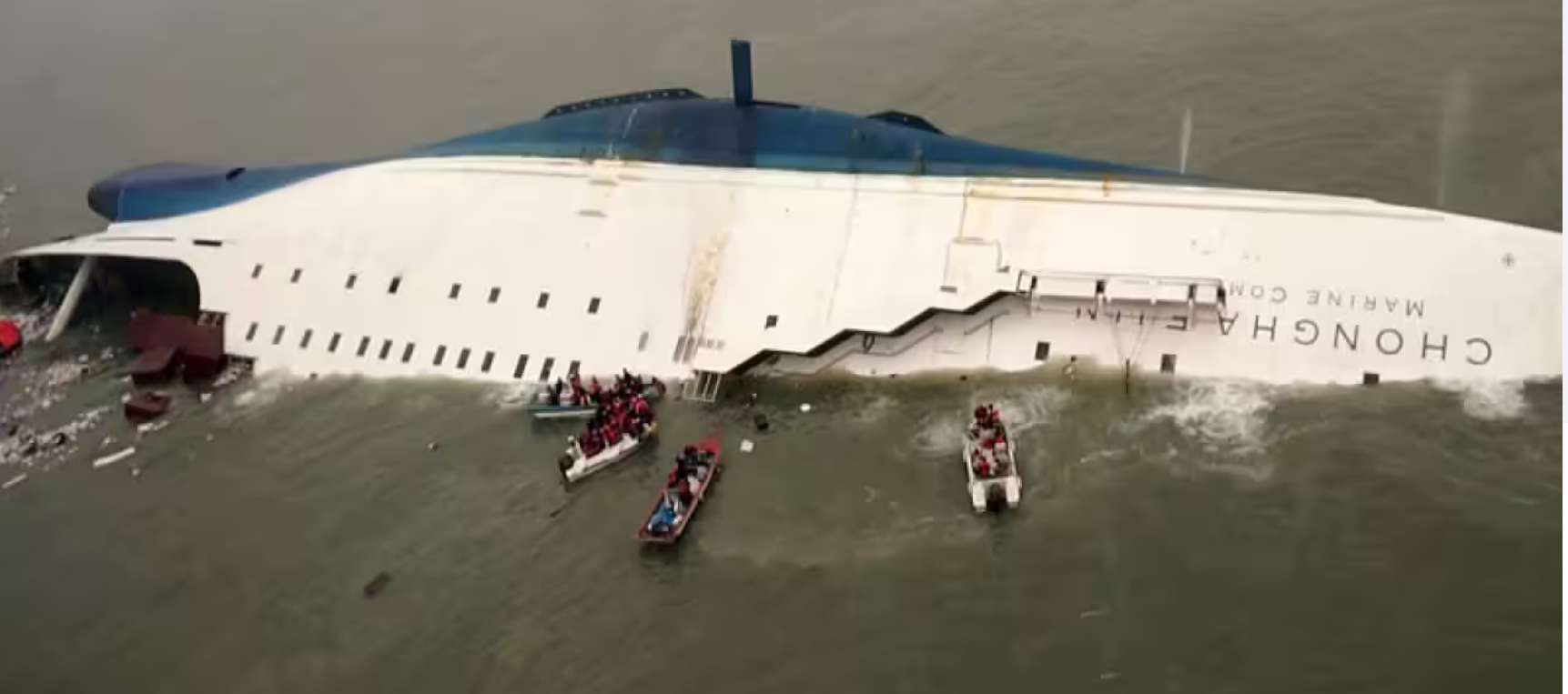The Weekly Reflektion 38/2025
The Sewol disaster is a stark reminder of what happens when people fail to carry out their responsibilities at every level. In any team, whether at sea or on land, each member has a role to play. The others in your team depend on you to know your duties, train for them, and act decisively when it matters most.

Does everyone in your team know their roles, and train for them?
On 15 April 2014, the ferry Sewol left the port of Incheon, South Korea, at 2100 hrs local time. On board were 476 passengers, including 325 students and 14 teachers on a high school field trip, and 33 crew members. The ship was carrying 2,143 tons of cargo, including 185 cars.
At around 0820 hrs on 16th April, while navigating a narrow channel, the helmsman was ordered to adjust course from 135 to 145 degrees. The vessel began to list heavily to starboard, and its bow swung to the right. The tilt soon reached about twenty degrees, causing cargo to shift to one side. This affected the ship’s stability, and water began flooding in through a cargo bay door and the car entrance at the stern. Within minutes, the Sewol was sinking.
Passengers were instructed over the public address system to remain in their cabins, and the crew repeated this order instead of organizing an evacuation. The captain also failed to countermand the instruction, even as he prepared to abandon ship. As a result, hundreds of passengers became trapped below deck.
The first emergency call came from a student at 0852 hrs. By 0914 hrs, the ferry’s severe list made evacuation nearly impossible. At 0933 hrs, area traffic authorities ordered other vessels in the area to assist in the emergency response. Just minutes later, all communication with the Sewol was lost. Between 150 and 160 passengers and crew managed to jump overboard, and the captain and several crew members who abandoned ship were among the first rescued around 0946 hrs. Out of 476 people on board, 304 died, 250 of them high school students.
Investigations revealed that the ferry was dangerously overloaded, carrying 3,608 tons of cargo, more than three times its legal limit of 987 tons, while also operating with only 580 tons of ballast water instead of the recommended 2,030. This combination raised the vessel’s centre of gravity and left it unstable.
The captain was convicted of gross negligence and sentenced to thirty-six years in prison. The chief engineer received thirty years, and thirteen other crew members were sentenced to up to twenty years for abandonment and violations of maritime law. The shipping company’s chief executive was also found guilty of negligence and sentenced to ten years, while six other employees received prison terms.
The disaster reverberated far beyond the maritime industry. The South Korean government faced harsh criticism for lax safety regulations and an inadequate rescue response. Public outrage grew as the government attempted to suppress criticism by establishing a commission to monitor and prosecute dissent. The subsequent corruption scandal engulfed the presidency, ultimately leading to the impeachment of President Park Geun-hye on 10 March 2017.
The sinking of the Sewol was not only a maritime disaster, it also was a national tragedy. It demonstrated how failures of responsibility at all levels, crew members to regulators to political leaders, can contribute to a Major Accident. For teams in any field, the lesson is clear: roles must be understood, responsibilities carried out, and trust honoured. Lives may depend on it.
